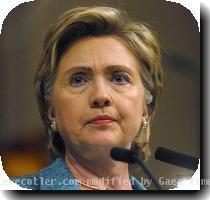Western nations offer skeptical reaction to Iranian proposal to ship uranium overseas
By George Jahn, APWednesday, February 3, 2010
West offers skeptical reaction to Iran nuke plan
PARIS — Iran on Wednesday described its latest offer to send uranium abroad for enrichment as a way to ease suspicions about his country’s nuclear ambitions, but skeptical Western officials demanded concrete actions from Tehran instead of just words.
French Foreign Minister Bernard Kouchner said he saw the surprise Iranian gesture as stalling rather than responding to an international offer that, if rejected, could lead to a fourth round of U.N sanctions.
“My (personal) interpretation is that they are buying us time and they are losing it” themselves, Kouchner said at a joint press briefing with China’s foreign minister. “I am perplexed and even a bit pessimistic.”
U.S State Department spokesman Gordon Duguid said all Iran needed to do is to accept the plan as drawn up months ago, by formally notifying the International Atomic Energy Agency of its approval.
“All the Iranians need to do is tell the IAEA that they are prepared to take it,” he told reporters in Washington.
Western officials spoke a day after Iranian President Mahmoud Ahmadinejad said Iran is ready to send its uranium abroad for further enrichment as called for by a plan endorsed by the U.S., Russia, China, Britain, France and Germany.
His comments appeared to at least move Iran closer to the proposal brokered by the International Atomic Energy Agency. That plan asked Iran to ship 70 percent of its enriched uranium out for processing into fuel rods for its Tehran nuclear reactor.
Still it was unclear how much of a concession the Ahmadinejad comments represented.
His time frame of four or five months appeared to fall short of the year that Western officials say the process would take.
It was also unclear if Iran was ready to ship out 70 percent of its enriched uranium in one batch, as foreseen under the IAEA-mediated plan. That would prevent the Islamic Republic from topping up its supply through its enrichment program and maintain enough to make the core of a nuclear warhead.
Iran says it wants to enrich only to make nuclear fuel for an envisaged nationwide network of nuclear reactors.
Iranian Foreign Minister Manouchehr Mottaki told reporters Wednesday in Turkey that Ahmadinejad’s comments represented “a formula which could build confidence.”
But German Foreign Minister Guido Westerwelle told journalists that Iran has to be measured by its actions, not by what it says.”
“It is up to Iran to show an end to its refusal to negotiate,” he said.
If there is no real movement on the Iranian side, Westerwelle said, the international community will go forward with preparing new measures including sanctions.
“Only actions count, not the words,” Westerwelle said.
The plan worked out last year envisaged Iran sending low-enriched uranium to Russia and then to France for further enrichment and then processing into metal fuel rods for use in a research reactor in Tehran. It was aimed at lowering international tensions between Iran and the world powers negotiating over its nuclear program.
Britain’s Foreign office said Wednesday that London has “always supported the proposal that the IAEA made in October. If Iran is now indicating that they will take it up we look forward to them making that clear to the IAEA.”
Ahmadinejad’s comments appeared timed in part to defuse pressure from the U.S., Britain, and France on fellow permanent U.N. Security Council members China and Russia for a fourth set of sanctions on Iran.
While Russia has eased its traditional skepticism over sanctions in recent months, veto-wielding China, now holding Security Council’s rotating presidency, remains opposed to harsh penalties on one of its main oil and gas suppliers.
U.S. Secretary of State Hillary Clinton said last week that she and others who support additional sanctions on Iran over its disputed nuclear program are lobbying China to back new U.N. penalties on the Iranian government.
But Chinese Foreign Minister Yang Jieche avoided criticizing Tehran, stressing instead the need to continue negotiations with Tehran with the aim of a quick diplomatic solution.
“We want a consensus as soon as possible,” he said.
Russia suggested Ahmadinejad’s comments warranted closer examination.
“If Iran is willing to revert to the plan agreed upon earlier, we will only welcome this,” Russian Foreign Minister Sergey Lavrov told reporters: “We want to verify this information now.”
Italian Prime Minister Silvio Berlusconi, on a visit to Israel, told that nation’s legislature that the world “cannot accept” a nuclear-armed Iran.
______
Jahn reported from Vienna. Associated Press writers Matthew Lee in Washington, Juergen Baetz in Berlin and David Stringer in London contributed to this report.
Tags: Asia, China, East Asia, Eastern Europe, Europe, Foreign Policy, France, Geography, Greater China, Hillary Clinton, Iran, Iran-nuclear, Middle East, North America, Paris, Russia, Tehran, Turkey, United States, Western Europe

